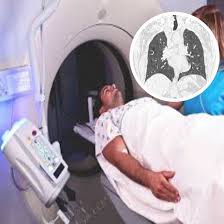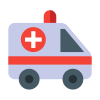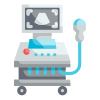Fill out form to enquire now
CECT Chest And Lower Neck
Medintu has collaborated with the best pathology laboratories that are NABL and NABH certified and follow ISO safety guidelines to provide the best CECT Chest And Lower Neck at an affordable price for needy individuals. A CECT Chest and Lower Neck is one of the most advanced non-invasive imaging techniques combining precision through CT scan results and improved detail provided through contrast. It is, in many ways, an important procedure that comes in handy when checking conditions for most patients within these parts.
Through the use of a contrast material injected into the bloodstream, CECT provides clearer and more detailed images of the critical structures such as lungs, heart, blood vessels, airways, and the soft tissues of the neck. It therefore plays an important role in diagnosing, assessing, and monitoring many conditions such as lung diseases, heart diseases, and thyroid problems among others. The imaging methodology isn’t only useful in identifying diseases but also aids the doctors in planning treatments and interventions. To schedule an appointment for CECT Chest And Lower Neck, simply contact Medintu or call our customer care at +919100907036 or +919100907622 for more details and queries.
What is CECT Chest and Lower Neck?
CECT Chest and Lower Neck is a term for Contrast-Enhanced Computed Tomography of the chest and lower neck. It is an imaging procedure that uses CT technology along with a contrast agent-a special dye-to create detailed, cross-sectional images of the internal structures of the chest and lower neck. The procedure helps doctors clearly visualize the lungs, heart, blood vessels, airways, lymph nodes, and the soft tissues of the neck to make more accurate diagnoses. The contrast agent, usually injected into the bloodstream, enhances the visibility of blood vessels, organs, and tissues, thus providing clearer and more comprehensive images than a regular CT scan.
Common diagnoses using the CECT Chest and Lower Neck include, but are not limited to, lung diseases, for example infections, tumors, chronic diseases, cardiovascular conditions such as aneurysms, blockages, or heart diseases, neck conditions including thyroid disorders, lymph nodes disorders, and tumors. This imaging technique is very helpful for identifying, assessing, and monitoring various health conditions for doctors to plan appropriate treatment and interventions. It’s non-invasive and can be done relatively quickly on the chest and neck.
Indications for CECT Chest and Lower Neck
A CECT Chest and Lower Neck is a highly effective diagnostic tool used for assessing various medical conditions in the chest and lower neck areas. The procedure is particularly helpful for detailed visualization of soft tissues, blood vessels, organs, and bones. Here are the key indications for undergoing this scan:
- Lung and Respiratory System Conditions
Lung Cancer: Identifying and staging tumors in the lungs, detecting possible metastasis.
Pulmonary Infections: Detecting infections such as pneumonia, tuberculosis, or abscesses.
Chronic Obstructive Pulmonary Disease (COPD): Detecting the extent of lung tissue and airway damage.
Pleural Effusion: Detecting fluid accumulation in the pleural space that lines the lungs. It can be due to a variety of conditions such as heart failure or infection.
Pulmonary Embolism: Detecting blood clots in the lungs, which is a life-threatening condition.
- Heart and Blood Vessel Conditions
Aortic Aneurysms or Dissections: CE of CT scan can help in detecting the aneurysm’s size and location within the aorta, which might cause life-threatening rupture.
Coronary Artery Disease: It determines whether the blockages are developed within the heart’s arteries that could lead to myocardial infarction and other cardiovascular diseases.
Congenital Heart Defects: The defects in the shape of the heart or irregularity in blood flow might be identified in infants and young adults.
Pulmonary Hypertension: Screening for high blood pressure in the lungs’ arteries.
- Neck and Soft Tissue Conditions
Thyroid Disorders: Searching for thyroid nodules, enlargement, or cancers; especially in the lower neck.
Lymphadenopathy: Enlarged lymph nodes that may be suggestive of infections, cancers, or other systemic diseases.
Neck Masses or Tumors: Searching for benign or malignant growths in the neck, including these related to the thyroid, salivary glands, or lymph nodes.
Infections: Detection of abscesses or other infections in the neck.
- Vascular Anomalies
Aortic Dissection: CECT visualizes a tear in the aorta, which is a medical emergency.
Pulmonary Vascular Anomalies: It is helpful in identifying anomalies in the blood vessels, arteriovenous malformations, or congenital abnormalities.
Thrombosis or Clots: The presence of blood clots in large veins, such as those in the chest region, like DVT or pulmonary embolism.
- Trauma and Injury Assessment
Chest Trauma: Assessment of injuries to the organs in the chest, such as the lungs, heart, ribs, or blood vessels.
Neck Trauma: Fractures, bleeding, or injury to the important structures in the neck that include the vertebrae, soft tissues, and blood vessels.
Preparation for CECT Chest and Lower Neck
Proper preparation is essential for a safe and accurate CECT Chest and Lower Neck scan. Here’s a preparation guide for the procedure:
- Medical History and Consultation
Inform Your Doctor: Provide a complete medical history, including any allergies (especially to iodine or contrast agents), kidney problems, asthma, or prior reactions to contrast material.
Pregnancy Status: Let your doctor know if you are pregnant or suspect you are. CECT is not recommended during pregnancy unless there is a compelling reason since it involves radiation.
Medications: Inform your doctor of any medications you are taking, especially blood thinners, as they may have an impact on the test. If you have any kidney issues, your doctor may need to adjust or forego the contrast agent.
- Fasting Instructions
Fasting Requirement: You would be required to fast for 4-6 hours before the procedure, especially when a contrast dye is involved. This makes sure your stomach is empty and helps prevent nausea and discomfort while undergoing the test.
Fluid Intake: Liquids may be consumed; however, you are strictly prohibited from drinking water if not ordered by your physician. You should continue your medication with water if instructed by your physician.
- Contrast Agent Considerations
What is the Contrast Agent?: It is an iodine-based contrast material, which is administered through the vein to provide better image capture during the scan. It outlines the blood vessels, soft tissues, and organs, giving a clearer picture of the structures in the chest and lower neck region.
Allergy Check: If you have a known allergy to contrast materials or iodine, let your doctor know well in advance so they can take precautions or suggest alternatives.
Hydration Before the Procedure: Drink plenty of water before your appointment (as advised by your doctor) to help flush out the contrast material after the scan.
- Clothing and Accessories
Wear Comfortable Clothing: You may be required to change into a hospital gown. You should not wear any jewelry, metal accessories, or clothing that has zippers or buttons since metal interferes with the CT images.
Remove Metal Objects: All metallic objects, including jewelry, glasses, hearing aids, and dentures, should be removed before scanning to avoid artifacts in the images.
- Informed History of Other Medical Conditions
Kidney Function: If a patient has a history of kidney disease or impaired kidney function, the use of a contrast agent may need to be reconsidered or adjusted. Ensure that you discuss this with your healthcare provider, because they may need to obtain a kidney function test, for example, serum creatinine levels, before administering the contrast.
Asthma or Breathing Conditions: If you have a history of asthma or other breathing conditions, tell the medical team. Contrast agents can sometimes cause mild breath discomfort.
- What to Expect on the Day of the Procedure
Arrival: Report to the imaging center or hospital as directed. The staff will walk you through the process, explain the procedure, and answer any questions you may have.
Contrast Injection: You will have an intravenous (IV) line placed in your vein, typically in your arm, for the contrast injection. You may feel a warm sensation for a few seconds as the contrast is injected.
Scan Positioning: You will lie on your back on the CT scanner table. You may be asked to hold your breath briefly while the scan is being performed to ensure clear images.
Benefits of CECT Chest and Lower Neck
The advantages of CECT Chest and Lower Neck are numerous and make this test an excellent tool for diagnosis in various conditions in the chest and neck. The main advantages are listed below:
- High-Resolution Images
This is an extremely detailed and clear cross-sectional imaging technique of the chest and lower neck that gives a far clearer image than traditional X-rays or basic CT scans.
Contrast-enhanced visualization of soft tissue: The contrast agent shows those parts of the body such as soft tissues, blood vessels and organs that are not properly evaluated with other imaging. This helps in detecting soft tissue problems like tumors or infections or vascular diseases.
- Non-invasive and Rapid Procedure
It is a non-invasive procedure that does not need surgical intervention or biopsy for acquiring critical diagnostic information.
Fast Results: The scan takes only about 15 to 30 minutes, and the results take about 24 to 48 hours. This allows fast diagnosis and time for further treatment.
- Proper Diagnosis and Early Detection
Detection of Tumors and Cancer: CECT is highly effective in detecting lung cancer, thyroid cancer, lymph node involvement, and other cancers in the chest and neck. It also helps in staging cancer, determining its spread, and monitoring the response to treatment.
Identification of Infections and Inflammation: It helps in diagnosing conditions like pneumonia, tuberculosis, abscesses, or any infection-related complications in the lungs, airways, or soft tissues of the neck.
- Evaluation of Vascular and Structural Abnormalities
Vascular Diseases: CECT is highly sensitive to detection and follow-up of vascular diseases, including aneurysms, blockages, and other abnormalities in the aorta, pulmonary arteries, or veins.
Chest Trauma: It can detect trauma-related injuries to organs, blood vessels, and bones in the chest area, thus assisting in assessing damage after accidents or falls.
- Advanced Treatment Planning
Surgical and Intervention Planning: The detailed images rendered by CECT help doctors with better planning of surgeries, biopsies, and interventions. For instance, in the case of cancer, it informs about the size, localization, and spread of tumor masses, which is one of the most important reasons for deciding on surgery or radiation therapy.
Monitoring the progression of the disease: CECT is very useful in chronic conditions such as lung diseases, cancers, or heart diseases to assess the patient’s response to the treatment and to look for any change or complication.
- Test Type: CECT Chest And Lower Neck
- Preparation:
- Wear a loose-fitting cloth
- Fasting required
- Carry Your ID Proof
- Prescription is mandatory for patients with a doctor’s sign, stamp, with DMC/HMC number; as per PC-PNDT Act
- Reports Time: With in 4-6 hours
- Test Price: Rs.4000
How to book an appointment for a CECT Chest And Lower Neck?
To schedule an appointment for CECT Chest And Lower Neck, simply contact Medintu or call our customer care at +919100907036 or +919100907622 for more details and queries.
What is a CECT Chest and Lower Neck?
A CECT Chest and Lower Neck is an advanced imaging technique in which Computed Tomography (CT) with contrast material is used to create images of the chest and lower neck. It aids in detecting diseases in the lungs, heart, blood vessels, and soft tissues of the neck.
Why do I need a CECT Chest and Lower Neck?
A CECT scan is usually applied in diagnosing or assessing the conditions like lung infections, tumors, cancers, heart diseases, blood vessel abnormalities, and conditions affecting the thyroid and neck. It offers a clearer image than the standard CT scans, especially for the soft tissues and blood vessels.
How should I prepare for the procedure?
You may be required to starve for a few hours before the procedure, depending on whether a contrast agent will be used. Inform your doctor if you have allergies to iodine or contrast materials or if you have any kidney problems since this can impact the procedure.
Is the procedure painful?
No, the CECT procedure is painless. The most you may feel is a mild discomfort when the contrast dye is injected, which may cause a brief warm sensation in your body. The scan itself is quick and non-invasive.
How long does a CECT Chest and Lower Neck scan take?
The whole process takes between 15 to 30 minutes. Scanning itself is not a very time-consuming process, but you may have to wait a few minutes for the contrast agent to start acting before the scan can begin.
Are there any risks associated with CECT?
Although CECT is considered safe, it does come with some risks, which include a mild allergic reaction to the contrast material. It also involves a small amount of radiation. The benefits of accurate diagnosis normally outweigh the risks, and you should always inform your doctor of any health conditions that may affect your scan.
Can I eat or drink before the scan?
For the most part, you’ll be asked to fast for several hours before the test, if you receive any type of contrast. You can expect to get specific instructions from your healthcare provider.
How will I receive my results?
Your CECT will be evaluated by a radiologist, who will report back to your doctor. You can usually expect results within 24 to 48 hours, at which time your doctor will discuss the findings with you.
Why Choose Medintu for CECT Chest And Lower Neck?
Medintu is an online medical consultant, which offers home services not only in your city but also in all major cities of India, such as Hyderabad, Chennai, Mumbai, Kolkata and others. This makes it easy for us to work with diagnostic centers that boast of having the most accurate equipment. The customer service for booking the appointment of the services is available 24/7 and Medintu also comes with instructions. Medintu has not only the best diagnostic centres, but it offers them at very cheaper prices. If you have been tested, you can promptly schedule an appointment with a health care service through our list of skilled physicians. For appointments for CECT Chest And Lower Neck, you can chat with us through Medintu or call our customer care at 919100907036 or 919100907622 for more information or inquiries.





